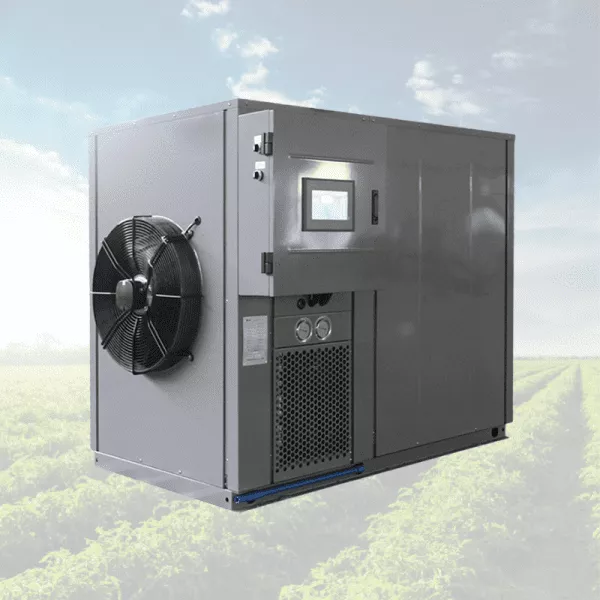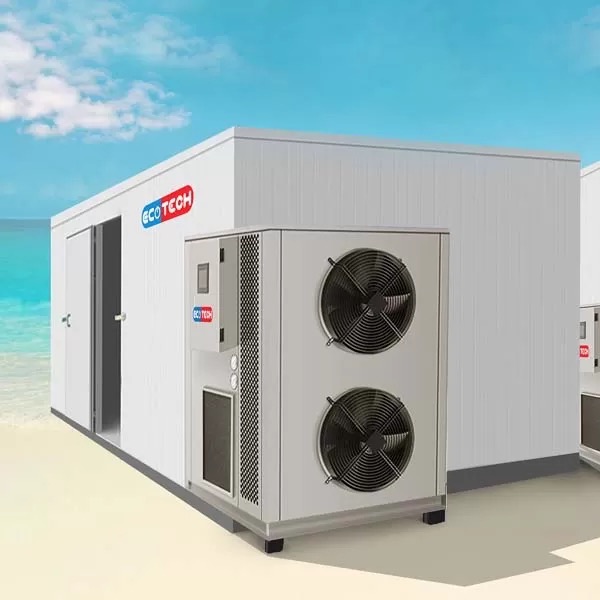
Content Menu
● Introduction to Heat Pump Dehydrator Technology
● Understanding the Heat Pump Dehydration Process
● Benefits of Heat Pump Dehydrator Technology
>> 1. Energy Efficiency
>> 2. Superior Product Quality
>> 3. Versatility
>> 4. Environmental Sustainability
● Applications of Heat Pump Dehydrator Technology
>> 1. Food Industry
>> 2. Pharmaceutical Industry
>> 3. Chemical Industry
>> 4. Agriculture
● Advancements in Heat Pump Dehydrator Technology
● Choosing the Right Heat Pump Dehydrator
● The Future of Heat Pump Dehydrator Technology
● Frequently Asked Questions
>> 1. What is the main advantage of using a heat pump dehydrator over traditional drying methods?
>> 2. Can heat pump dehydrators be used for all types of food products?
>> 3. How does heat pump dehydrator technology contribute to product quality?
>> 4. Are heat pump dehydrators environmentally friendly?
>> 5. What factors should be considered when choosing a heat pump dehydrator?
Introduction to Heat Pump Dehydrator Technology
In the ever-evolving world of food preservation, heat pump dehydrator technology has emerged as a game-changer. This innovative approach to food drying combines energy efficiency with superior quality results, making it an increasingly popular choice for both industrial and commercial applications. As we delve into the world of heat pump dehydrators, we'll explore their working principles, benefits, and wide-ranging applications in the food industry and beyond.
Understanding the Heat Pump Dehydration Process
At the heart of heat pump dehydrator technology lies a sophisticated system that leverages the principles of thermodynamics to remove moisture from food products efficiently. Unlike traditional drying methods that rely solely on heat, heat pump dehydrators use a closed-loop system that recirculates and dehumidifies air, creating an optimal drying environment.
The heat pump dehydration process involves several key components:
1. Evaporator: Removes moisture from the air
2. Compressor: Increases the temperature and pressure of the refrigerant
3. Condenser: Transfers heat to the drying air
4. Expansion valve: Regulates the flow of refrigerant
This closed-loop system allows for precise control over temperature and humidity, resulting in a more consistent and energy-efficient drying process.

Benefits of Heat Pump Dehydrator Technology
The adoption of heat pump dehydrators in food processing has brought about numerous advantages over conventional drying methods. Let's explore some of the key benefits:
1. Energy Efficiency
One of the most significant advantages of heat pump dehydrator technology is its remarkable energy efficiency. By recycling heat and controlling humidity levels, these systems can achieve energy savings of up to 60-70% compared to traditional drying methods. This not only reduces operational costs but also contributes to a more sustainable food processing industry.
2. Superior Product Quality
Heat pump dehydrators offer precise control over drying conditions, allowing for the preservation of essential nutrients, flavors, and colors in food products. The gentle drying process helps maintain the structural integrity of foods, resulting in higher quality end products with extended shelf life.
3. Versatility
From fruits and vegetables to meats and herbs, heat pump dehydrators can handle a wide range of food products. Their ability to operate at lower temperatures makes them suitable for drying heat-sensitive materials, expanding the possibilities for food preservation and processing.
4. Environmental Sustainability
By reducing energy consumption and utilizing environmentally friendly refrigerants, heat pump dehydrators contribute to a smaller carbon footprint. This aligns with the growing demand for sustainable food processing solutions in today's eco-conscious market.

Applications of Heat Pump Dehydrator Technology
The versatility of heat pump dehydrators has led to their adoption across various industries and applications. Let's explore some of the key areas where this technology is making a significant impact:
1. Food Industry
In the food industry, heat pump dehydrators are revolutionizing the way we preserve and process a wide range of products:
- Fruits and vegetables: Producing high-quality dried fruits and vegetables with retained nutritional value and flavor.
- Meat and fish: Creating jerky, dried fish, and other preserved meat products with improved texture and shelf life.
- Herbs and spices: Drying aromatic herbs and spices while preserving their essential oils and flavors.
- Dairy products: Manufacturing powdered milk and cheese with enhanced quality and reduced energy costs.
2. Pharmaceutical Industry
Heat pump dehydrator technology has found applications in the pharmaceutical industry for drying heat-sensitive materials and producing powdered medications with consistent quality.
3. Chemical Industry
In chemical processing, heat pump dehydrators are used for drying various compounds and materials, offering precise control over the drying environment to ensure product integrity.
4. Agriculture
Farmers and agricultural processors use heat pump dehydrators for drying grains, seeds, and other crops, reducing post-harvest losses and improving storage stability.
Advancements in Heat Pump Dehydrator Technology
As the demand for efficient and sustainable food preservation methods grows, manufacturers are continually innovating to improve heat pump dehydrator technology. Some recent advancements include:
1. Smart controls and IoT integration for remote monitoring and optimization
2. Hybrid systems combining heat pump technology with other drying methods for enhanced efficiency
3. Improved heat recovery systems to further reduce energy consumption
4. Development of larger capacity units for industrial-scale applications
Choosing the Right Heat Pump Dehydrator
When selecting a heat pump dehydrator for your specific needs, consider the following factors:
1. Capacity: Determine the volume of product you need to process
2. Energy efficiency: Look for models with high Coefficient of Performance (COP) ratings
3. Temperature range: Ensure the unit can operate at the required temperatures for your products
4. Humidity control: Check for precise humidity regulation capabilities
5. Ease of use and maintenance: Consider user-friendly interfaces and accessible components for cleaning and servicing
The Future of Heat Pump Dehydrator Technology
As we look to the future, heat pump dehydrator technology is poised to play an increasingly important role in sustainable food preservation and processing. With ongoing research and development, we can expect to see:
1. Further improvements in energy efficiency and performance
2. Integration with renewable energy sources for even greater sustainability
3. Expansion into new industries and applications
4. Development of compact, affordable units for small-scale and home use
In conclusion, heat pump dehydrator technology represents a significant leap forward in the field of food preservation and processing. By offering energy efficiency, superior product quality, and versatility, these systems are transforming the way we approach dehydration across various industries. As the technology continues to evolve, we can look forward to even more innovative applications and benefits in the years to come.

Frequently Asked Questions
1. What is the main advantage of using a heat pump dehydrator over traditional drying methods?
Answer: The main advantage of heat pump dehydrators is their superior energy efficiency. They can achieve energy savings of up to 60-70% compared to traditional drying methods by recycling heat and controlling humidity levels. This results in lower operational costs and a more sustainable food processing approach.
2. Can heat pump dehydrators be used for all types of food products?
Answer: Heat pump dehydrators are highly versatile and can be used for a wide range of food products, including fruits, vegetables, meats, herbs, and dairy products. Their ability to operate at lower temperatures makes them suitable for drying heat-sensitive materials, expanding the possibilities for food preservation and processing.
3. How does heat pump dehydrator technology contribute to product quality?
Answer: Heat pump dehydrators offer precise control over drying conditions, allowing for the preservation of essential nutrients, flavors, and colors in food products. The gentle drying process helps maintain the structural integrity of foods, resulting in higher quality end products with extended shelf life compared to traditional drying methods.
4. Are heat pump dehydrators environmentally friendly?
Answer: Yes, heat pump dehydrators are considered environmentally friendly. They reduce energy consumption significantly compared to conventional drying methods, leading to a smaller carbon footprint. Additionally, many modern heat pump dehydrators use environmentally friendly refrigerants, further contributing to their sustainability.
5. What factors should be considered when choosing a heat pump dehydrator?
Answer: When selecting a heat pump dehydrator, consider the following factors: capacity (volume of product to be processed), energy efficiency (look for high COP ratings), temperature range, humidity control capabilities, ease of use and maintenance, and compatibility with your specific product requirements. It's also important to consider the initial investment cost and long-term energy savings.












